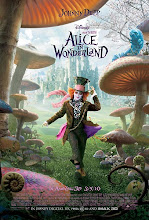
Written By E. Corrado
When did you find out that you were going to be working on Valkyrie? It was around February or March two years ago. It was a few months after Superman Returns, which I had worked on, and was also directed by Bryan Singer. I work a lot with Bryan, and I usually like to take some time between his projects to work on composing for other movies. Anyway, it was just shortly after Superman, and he called me up, and I asked him why he was calling me so soon after. So he started telling me that there was this little movie he was working on. He told me it was a true story, just a quick in and out thing that wouldn’t take long. Now, here we are and well, it’s amazing what it’s become.
What kind of timeline do you usually have between finding out that you are going to be working on a film, and actually starting on it? It varies. As a composer, sometimes you find out you’re going to be on a project, but then not really start on it until months later. Other times, it’s literally that you’re starting the next day and working feverishly for a few weeks to get it done.
What was it like editing the film and doing the music for it? It’s an all consuming exercise to try to accomplish both tasks. It is very difficult to say the least.
What was it like working on a movie based on true events? It’s a suspense thriller, but you’re kind of hand-tied by history which adds a lot of weight. We had to make sure we were accurate about every single detail, like the insignias on the uniforms. We may not notice if it was off, but there are people who would, so the fact that you have to try to make it accurate to actual events, adds a lot.
What were the biggest challenges working on Valkyrie? One of the biggest challenges was that you realize that since it is based on true events, the majority of people will already know the story. So you have to keep it fascinating and suspenseful when it’s a reality that the ending’s known. The dialogue has to feel suspenseful even when nothing is actually happening, and they are just talking about what they are going to do.
What was your favorite part of working on Valkyrie? That’s a hard question. Probably the final sound mix on the film, because then I know that all of the editing decisions are final.
How does Valkyrie compare to other films that you have worked on? I would say it was the most difficult film for editing so far. It is kind of a different movie, and I like movies like that, but then again it was also a thriller too.
When did you know that you wanted to work with film, and music? I think I always wanted to make movies. I used to record my own radio programs, and make films with the neighbors as actors in them. When I was older, I went to film school, and in the mid-80’s midi technology came out, and I got myself a keyboard and started playing around with it. I started using my friends student films as guinea pigs for music composition, and found out that I had a knack for it. It started out as a hobby, but to make a long story short, I was helping Bryan Singer, whom I knew, edit his film Public Access, and he needed a composer at the last minute, so I did it.
Where did you study music/editing? I was mostly self taught. I played the clarinet when I was younger in marching bands, and I also loved going and watching the symphony in my home town. You learn through lots of trial and error. I also went to USC for film studies, and although there’s not a specific course on it, the film courses are very heavily centered on editing.
Are there any movies that you feel you could have done differently? It’s something that’s always at the back of my head when watching it, because you know what was ‘Option B’. If you look at Close Encounters Of The Third Kind as an example, the director, Steven Spielberg, released a bonus cut of it, and it shows that there are definitely options about how you edit a film. The thing is though, that’s it’s kind of weird to see, because, once a movie’s finished and people have seen it, how you see the movie is how it is. Anything else just doesn't feel the same.
Thank you for taking the time to talk with me today. Thank you, and I hope that people will go see this movie, and enjoy it.
One Movie, Five Views thanks John Ottman for taking the time to do this interview.


























